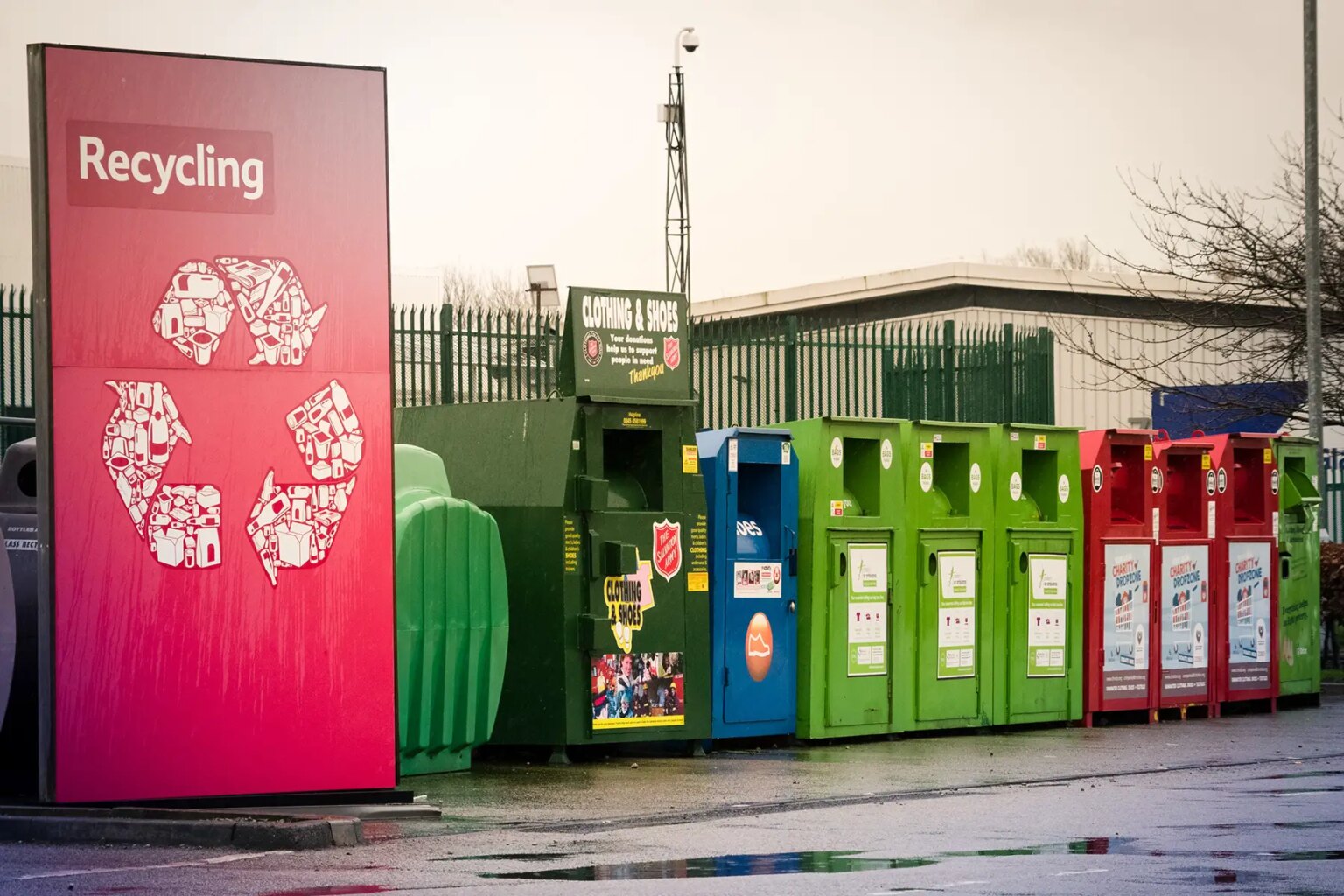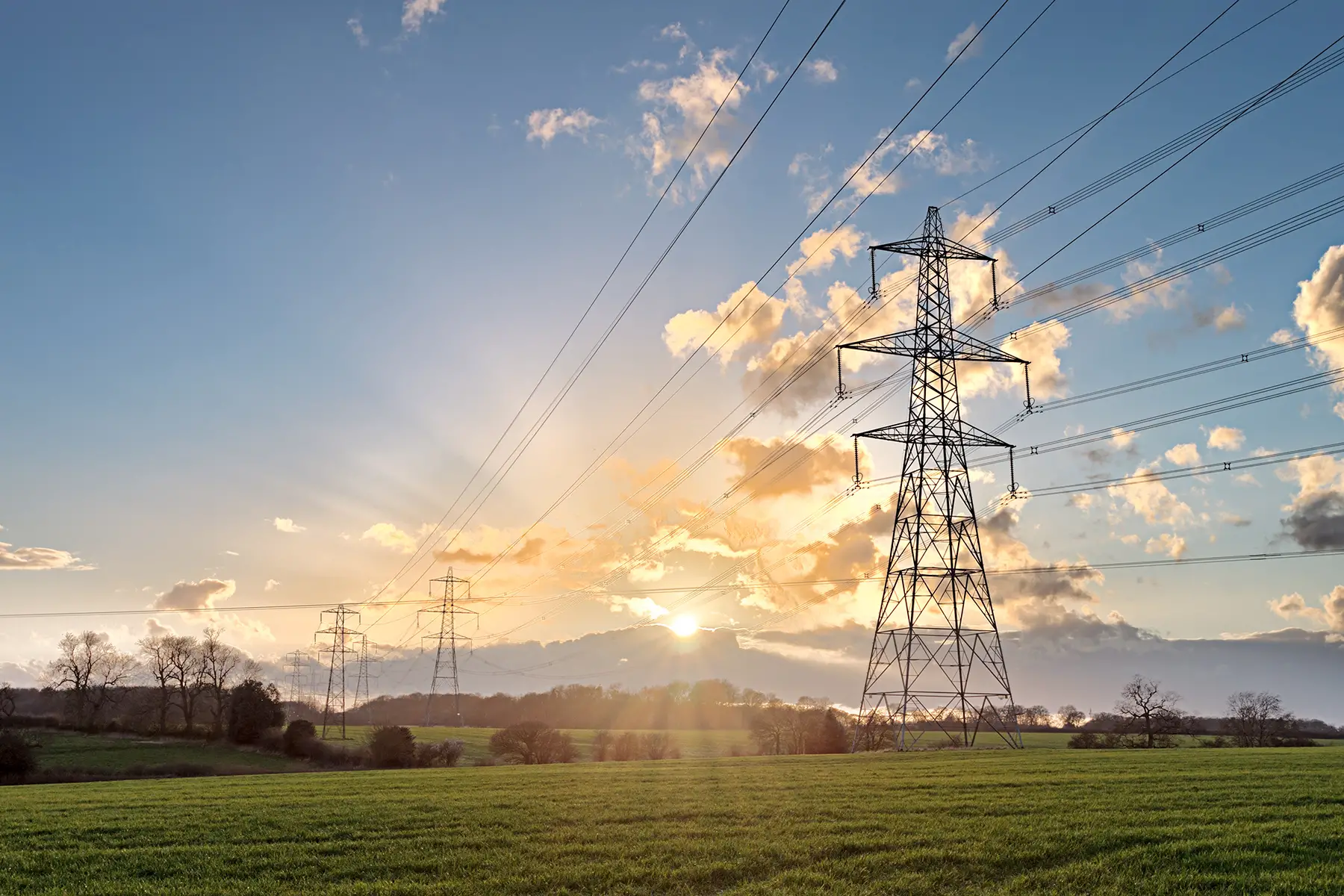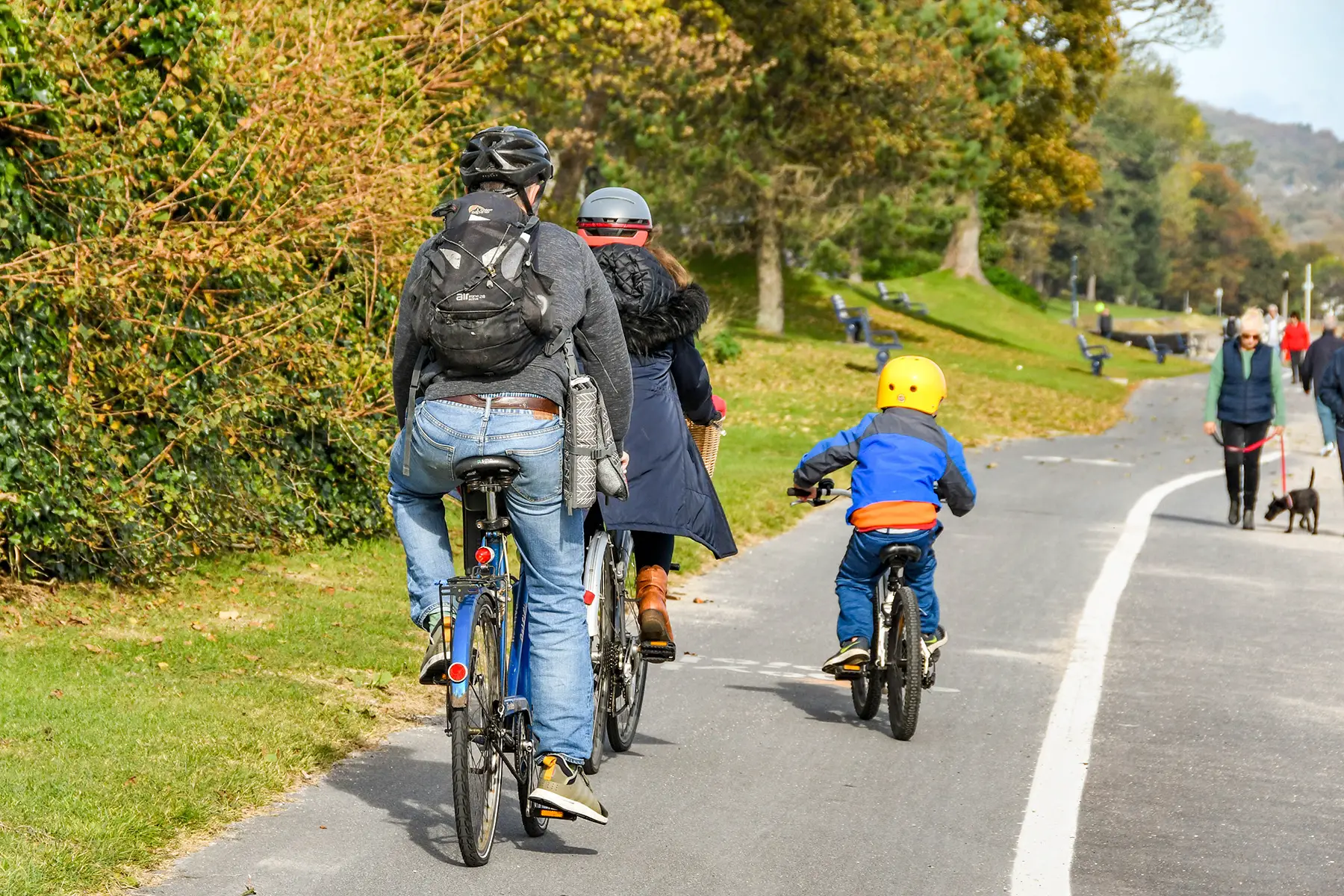As an expat arriving in the UK, you’ll face all sorts of unique challenges in your everyday life. From knowing where to buy postage stamps to finding your nearest hardware store, there are some things you simply need to know. It might not be the most glamorous part of expat life, but knowing how recycling and garbage collections work in the UK is essential.
Not only will knowing how and what to recycle help you live more sustainably but understanding how your local collections operate will also ensure the smooth running of your new home in the UK. To give you an idea of what to expect, this guide provides information on the following:
Recycle Now
Confused about how you should be recycling in the UK? Don't worry, because Recycle Now has all the answers to your questions. From what you should be putting in your household collection to where you can safely recycle refrigerators and toxic chemicals, Recycle Now has all the information you could ever need. Boost your green credentials today.
The recycling system in the UK
Like many other European countries, the United Kingdom has made significant improvements to its recycling system in the last couple of decades. According to government statistics for 2018, the UK as a whole recycled 45% of all household waste, down slightly from 45.7% in 2017. A closer look at the data shows there are substantial differences across the country, though, as some parts of the UK recycle more than others. For example, Wales recycled 54.1% of household waste in 2018.
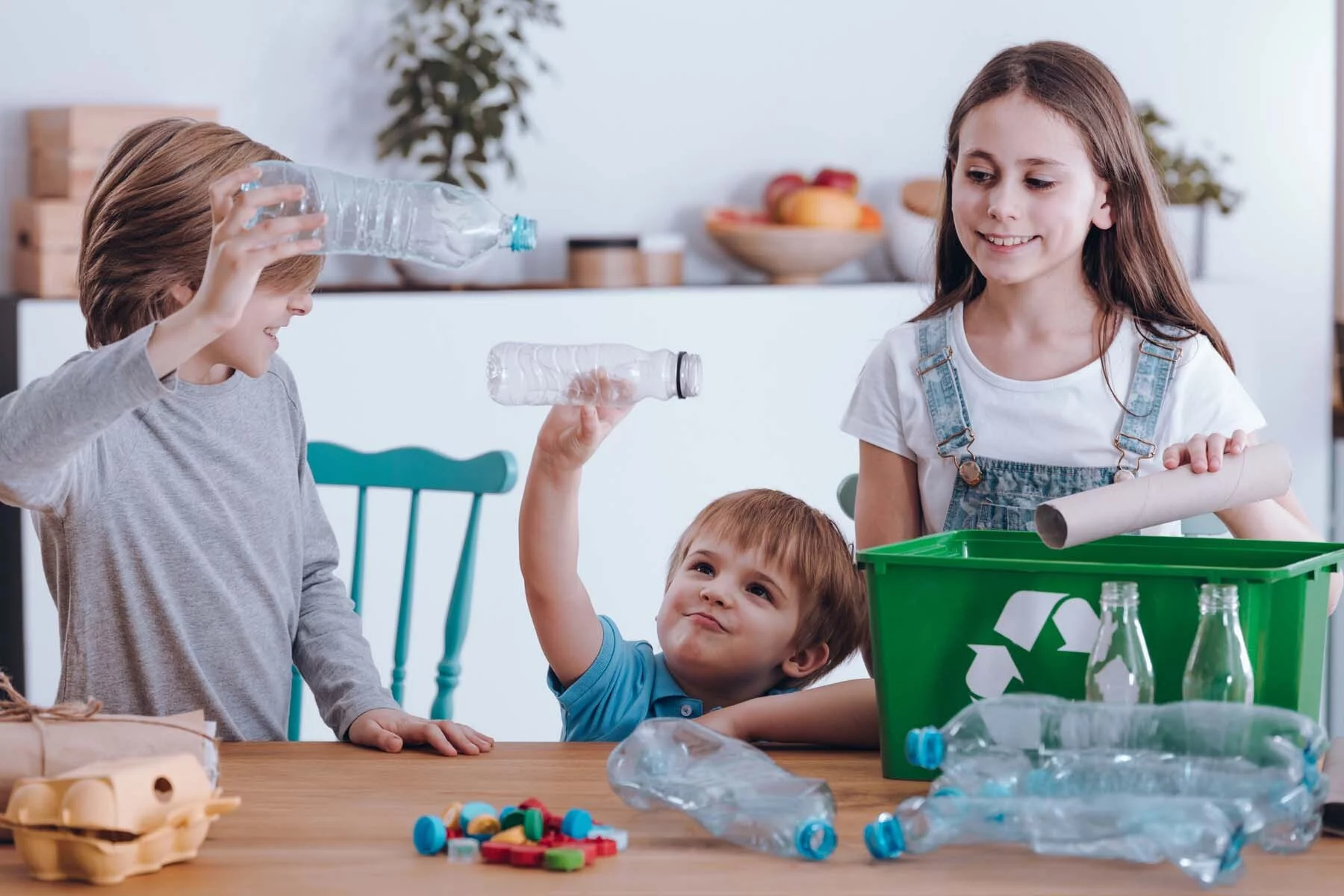
However, despite these general improvements, the UK continues to lag behind the world-leaders in recycling. Countries like Germany, South Korea, and Austria each recycle between 60% and 70% of household waste. The UK, meanwhile, recycles around 44%.
What happens to recycled materials?
Once you’ve thrown your recycling into the right receptacle, what happens to it? Well, that depends on the material. Generally speaking, much of your household waste will be recycled in the UK, including paper, metal, and glass. These materials are also the most recycled, with 79% of paper and cardboard, 71.3% of metal, and 67.6% of glass recycled in 2017, respectively. However, despite these encouraging numbers, the UK still exported 9.5 million tonnes of metal and 4.5 million tonnes of plastic abroad for recycling in 2018 alone.
When it comes to plastic, the figures are a little different. A BBC investigation found that the UK exported over 600,000 tonnes of recovered plastic packaging in 2018 alone. Much of this ended up in Malaysia, Türkiye, and Poland, following the Chinese government’s earlier decision to ban imported plastic scrap that was less than 99.5% pure. However, the issue of exporting recyclable waste abroad is highly controversial, with the industry having links to organized crime and illegal burning.
In a bid to help cut plastic waste, the UK government has introduced several measures to reduce plastic use at a household level, particularly single-use plastics. This includes 2015’s ban on supermarket plastic bags – which saw plastic bag usage drop by 90% – and a ban on plastic straws and servers, due to come into effect in 2020. It’s hoped that these measures, alongside campaigns to reduce plastic use in everyday life, such as supermarket shopping, will help address the UK’s issue with plastic use. For more information on how you can help, read our 10 simple steps to sustainable living in the UK.
How to recycle in the UK
Generally speaking, the vast majority of homes in the UK will have their recycling collected by their local authority on their doorstep. If you live in an apartment building, whether council- or privately-owned, you’ll have a communal recycling point somewhere outside your building where you can leave your recycling. However, rather confusingly for expats and locals alike, what and when you recycle depends entirely on where you live.
Recycling is organized at a local level, meaning household collections and public recycling points are managed by the local authority – and paid for through your local council tax in the UK. This means that recycling requirements can vary substantially even between neighboring areas. When you move into a new home, make sure you check out your local authority’s website for more information. Here, you’ll find out how and what to recycle, as well as when the weekly or fortnightly collections take place. For a more general overview of recycling in the UK, visit Recycle Now.
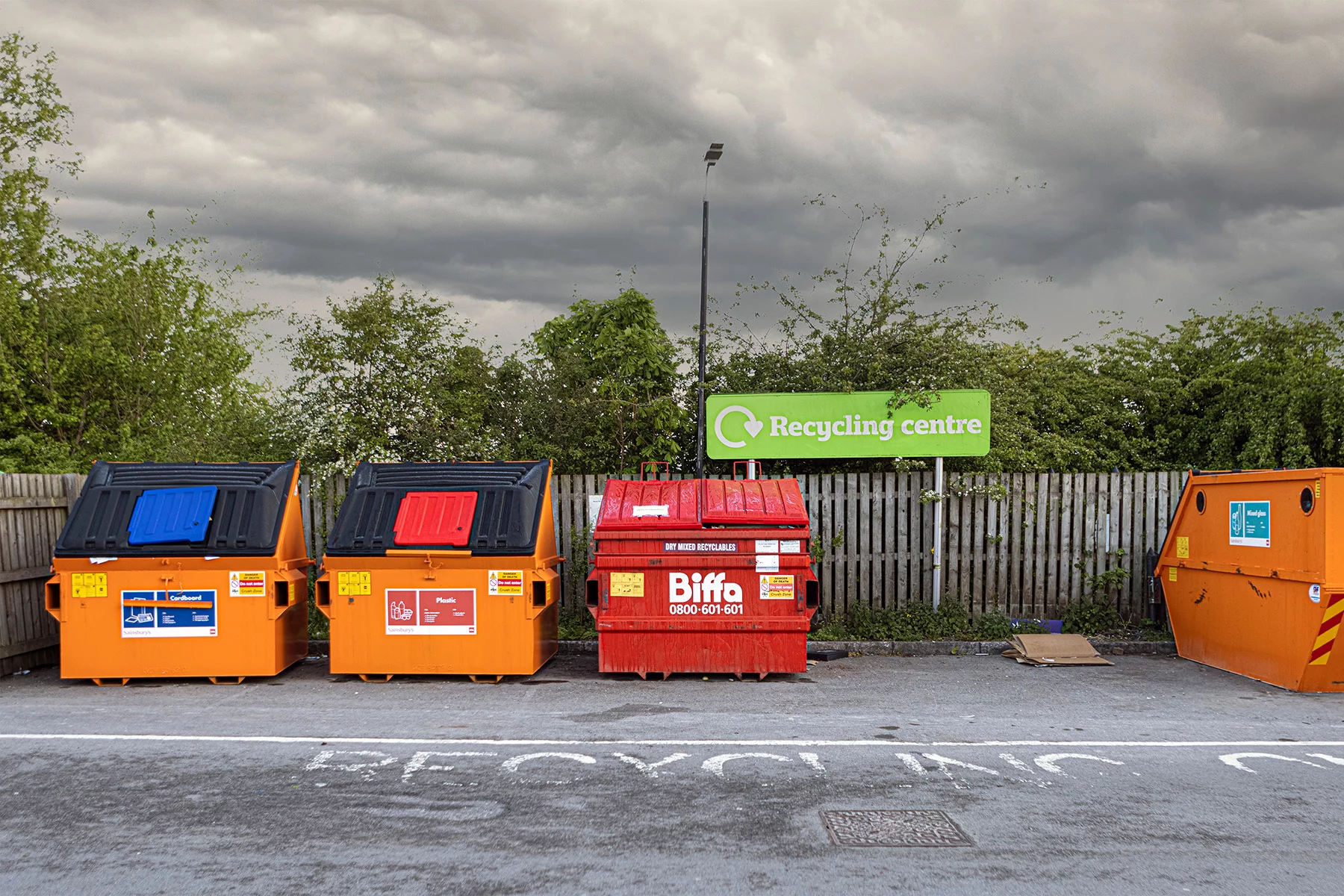
Almost all neighborhoods, towns, and villages in the UK will also have a small roadside recycling center. This is generally located near other public services (such as a library or health center), in a local car park, or at a supermarket. Here, you’ll find glass recycling (bottle banks) alongside other recycling services not available through curbside collection. This includes clothing, shoes, textiles, and even books and CDs. For larger items, you’ll need to visit your nearest Household Waste and Recycling Center, which offers a mix of recycling and garbage services. Unlike other European countries, UK supermarkets don’t have recycling stations for plastic and glass bottles.
Recycling paper
Paper and cardboard are widely recycled across the UK, including boxes, newspapers, magazines, and more. You can recycle these as part of your regular curbside recycling collections, ensuring the paper isn’t stained with food, paint, dirt, or anything else. Napkins, sanitary towels, and other hygiene products cannot be recycled. Visit Recycle Now for more information on paper recycling.
Recycling plastic
As plastic use continues to soar across the world, you’ll be pleased to know that it is increasingly recyclable throughout the UK. However, there are many different types of plastic, and not all are equal when it comes to recycling. Most plastic packaging can be recycled from home, while others will need to be taken to a specific collection point.
To know whether you can include a piece of plastic in your recycling collection, you’ll need to know which type of plastic you’re dealing with by checking for any ‘on-pack’ recycling labels. These will show you whether the packaging is recyclable or not. If you plan to recycle plastic, you should ensure it’s clean and all foodstuffs have been properly removed. However, you can’t recycle some plastics, such as cling film (saran wrap), plastic sticky tape, and chemical bottles. For more details on what plastic you can and can’t recycle, check Recycle Now.
Recycling glass
Glass is one of the easier things to recycle in the UK, and you’ll be able to recycle most glass containers you acquire during your grocery shopping. Most local authorities will collect glass as part of your recycling collection. You should ensure that all glass bottles and jars are clean before recycling. Alternatively, you’ll find glass recycling facilities (called bottle banks) at your local recycling center.
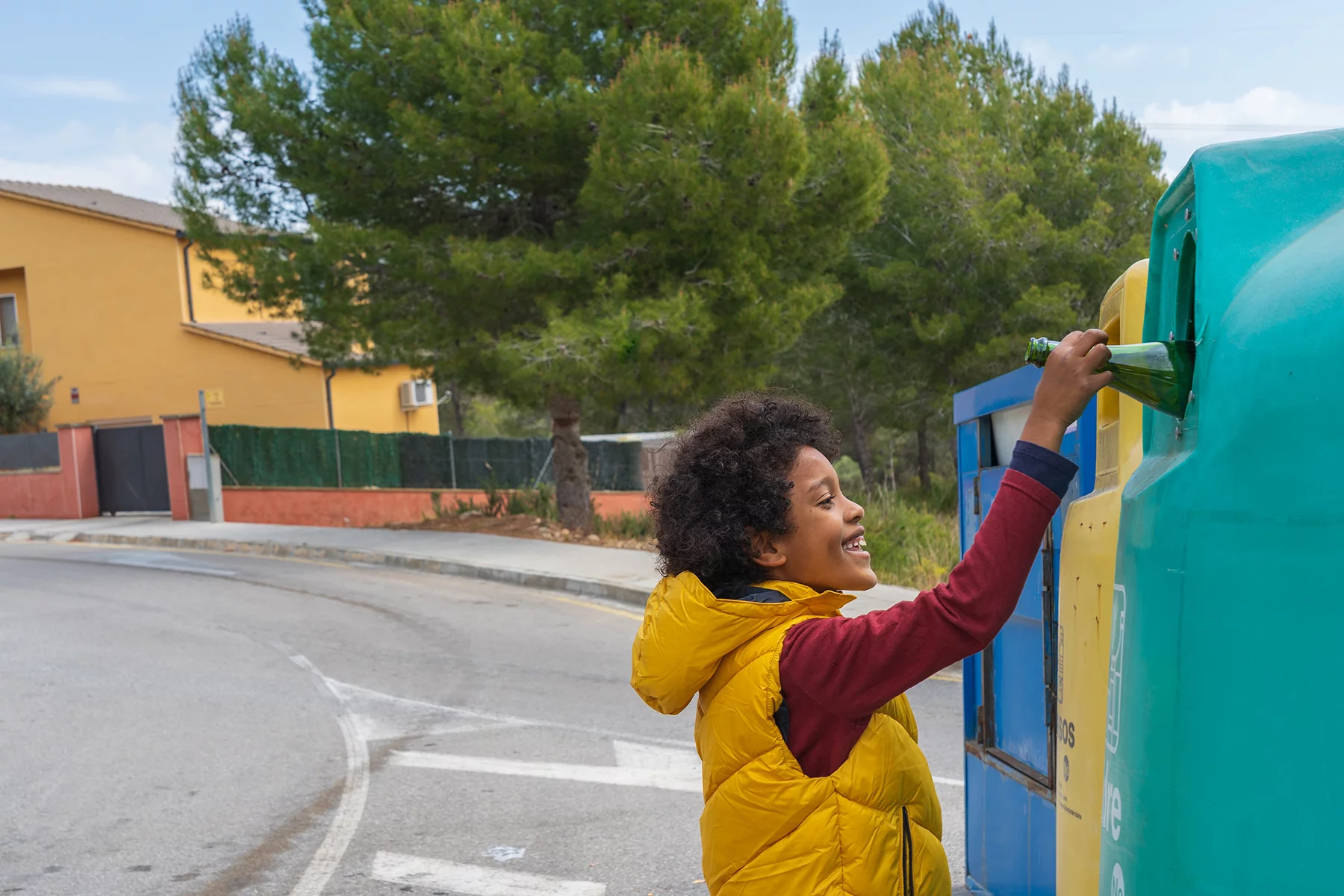
Recycling metal
Another easily-recyclable material is metal, including drink cans, food tins, and even aluminum foil. You can include these metals in your recycling collections, as long as they are clean and are free of all foodstuffs. You can leave the labels on as these are removed during the recycling process. For more information on which metals you can recycle and how, visit Recycle Now.
Recycling other household items
In addition to the above, there are many other items you can recycle in the UK that can’t be included in your weekly collections. Here are some of the most common items and how you can recycle them:
- Clothes: You can recycle clothes and other textiles at clothing banks. You can find these at recycling centers across the country. Alternatively, why not donate any good quality old clothing to your local charity shop (thrift store)?
- Shoes: You’ll also find shoe recycling points at many of these recycling centers. Make sure to tie the laces together and deposit it at your nearest shoe recycling point.
- Batteries: Batteries are widely recycled, however not all local authorities will take them as part of the collection. If your local council doesn’t collect batteries, you’ll need to find your local recycling point. These are normally in supermarkets and other stores.
- Mobile phones: Got a new mobile phone in the UK? You can recycle your old smartphone a number of ways, including sending them off to charity. You can also deposit them at the ‘small electricals’ containers at your nearest public garbage and recycling dump.
- Appliances and other electronics: Whether you’re getting rid of your toaster or your TV, you can still recycle it in the UK. Find your nearest Household Waste and Recycling Center online and drop your items off at the electricals container.
Tips for recycling in the UK
New in the UK? Getting to grips with how the local recycling system works can be tricky. To ensure you don’t end up wasting your time, here are a few quick tips for making recycling easier at home:
- Do your research: Every local authority in the UK does recycling slightly differently from the last. Whenever you move to a new area, do your research on the local system. This will ensure you know exactly what to expect.
- Wash, wash, wash: Get into the habit of washing out all that food packaging before tossing it in the recycling bin. It won’t take long and will ensure your recycling is more effective.
- Arrange your waste: Putting your recycling next to your waste collection at home will make the process a whole lot easier. If you’re separating recycling, make sure you mark which is which!
Food composting in the UK
A great way to make your life that little bit more sustainable is to start food composting. Luckily, for expats arriving in the UK, food composting is becoming increasingly popular. It’s also relatively easy to do at home. Many local authorities across the country provide ‘kitchen caddies’, small containers where you can collect food scraps and waste. These are then included as part of your weekly or fortnightly household recycling collections. For more information on food composting and what scraps you can and can’t compost, visit Recycle Now or your local council’s website.
Garbage collection in the UK
Garbage collection – or rubbish collection, as the locals call it in the UK – sees household waste collected on the curbside by the local authority. The waste is then transferred to local landfill sites. Recent years have seen local authorities try to reduce the amount of waste they send to landfills by improving recycling and composting collections and reducing the regularity of garbage collections. However, despite these measures, the amount of waste sent to landfills is still increasing.
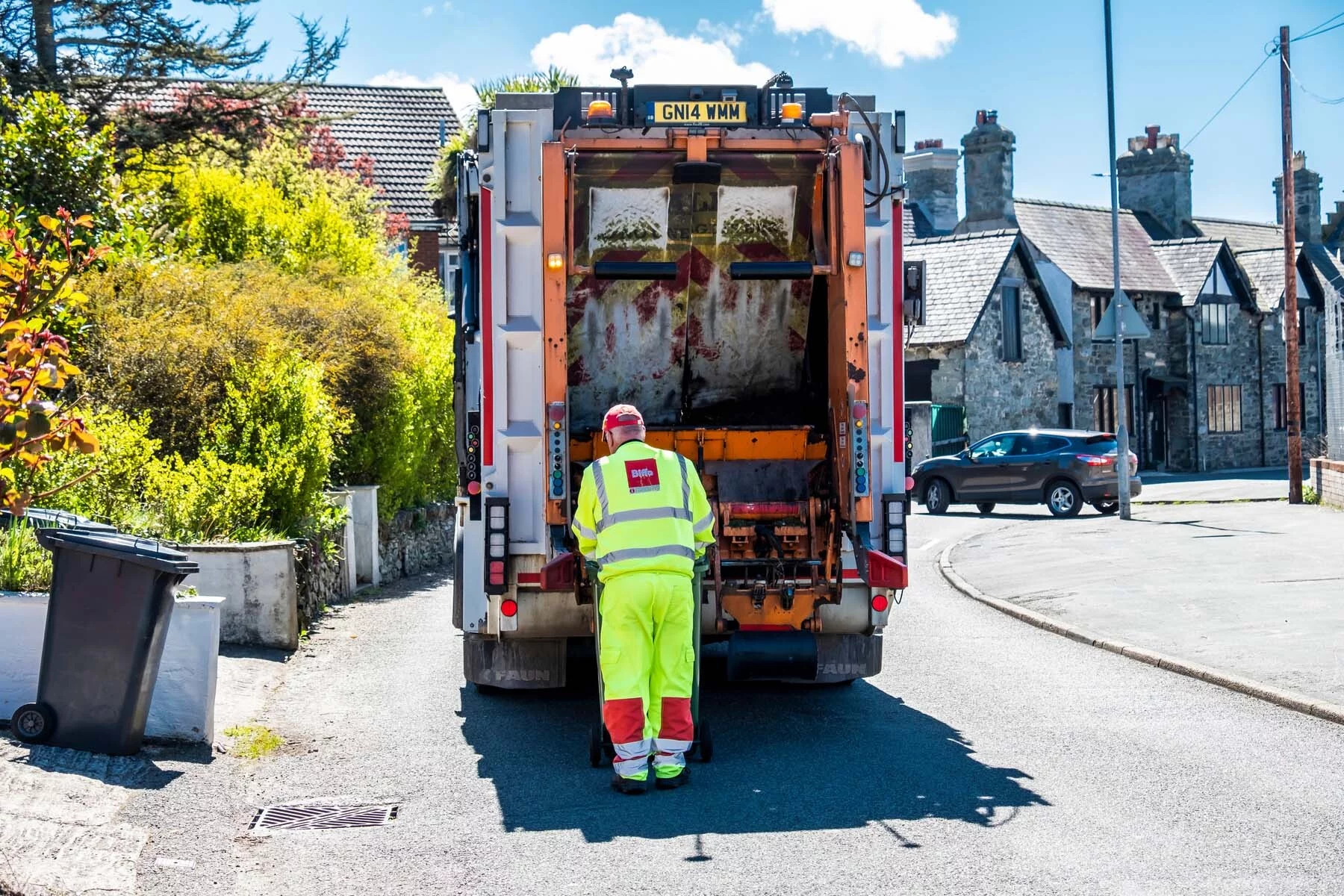
Garbage collections happen either weekly or fortnightly and are organized at a local level. Most local authorities provide wheelie bins which make it easier for garbage trucks to collect trash on the roadside. If you live in an apartment building, you’ll likely have communal garbage dumpsters near the entrance. These will also be emptied at regular intervals alongside household wheelie bins in the local neighborhood.
When does my garbage get collected in the UK?
That largely depends on where you live. Each local authority has its own timetable when it comes to collecting trash. You’ll need to check your local authority’s website to find out when garbage is collected in your neighborhood. Be aware that garbage collection varies significantly during holidays, particularly Christmas and Easter. Ahead of any UK public holidays, your local authority will advise you when your garbage and recycling collection will happen. This will either be via email or a leaflet delivered through your door so look out for this to ensure you don’t miss garbage day.
Garbage dumps in the UK
If you’ve got a large number of household items to dispose of, you’ll probably need to visit your local garbage dump. These are known as Household Waste and Recycling Centers. Locals also refer to them as ‘tips’. At these centers, you’ll be able to dispose of both household waste and recycling. This is particularly helpful if you want to recycle larger items such as electrical appliances, garden waste, and DIY waste including paint and chemicals. These centers are only open to household waste, and not commercial waste. To find your nearest center, check out Recycle Now’s center finder.
Be aware that dumping your waste – known locally as fly-tipping – is illegal across the UK. The practice is punishable by fines of up to £50,000. You could also face up to 12 months in prison should you be found guilty at your local magistrates’ court. If you see someone fly-tipping, or are aware of it taking place in a certain location, report it to the Environment Agency.
Useful resources
- Recycle Now – your one-stop-shop for information on recycling in the UK
- WRAP – UK charity aimed at reducing waste across the country
- Gov.uk – Find your garbage collection day
